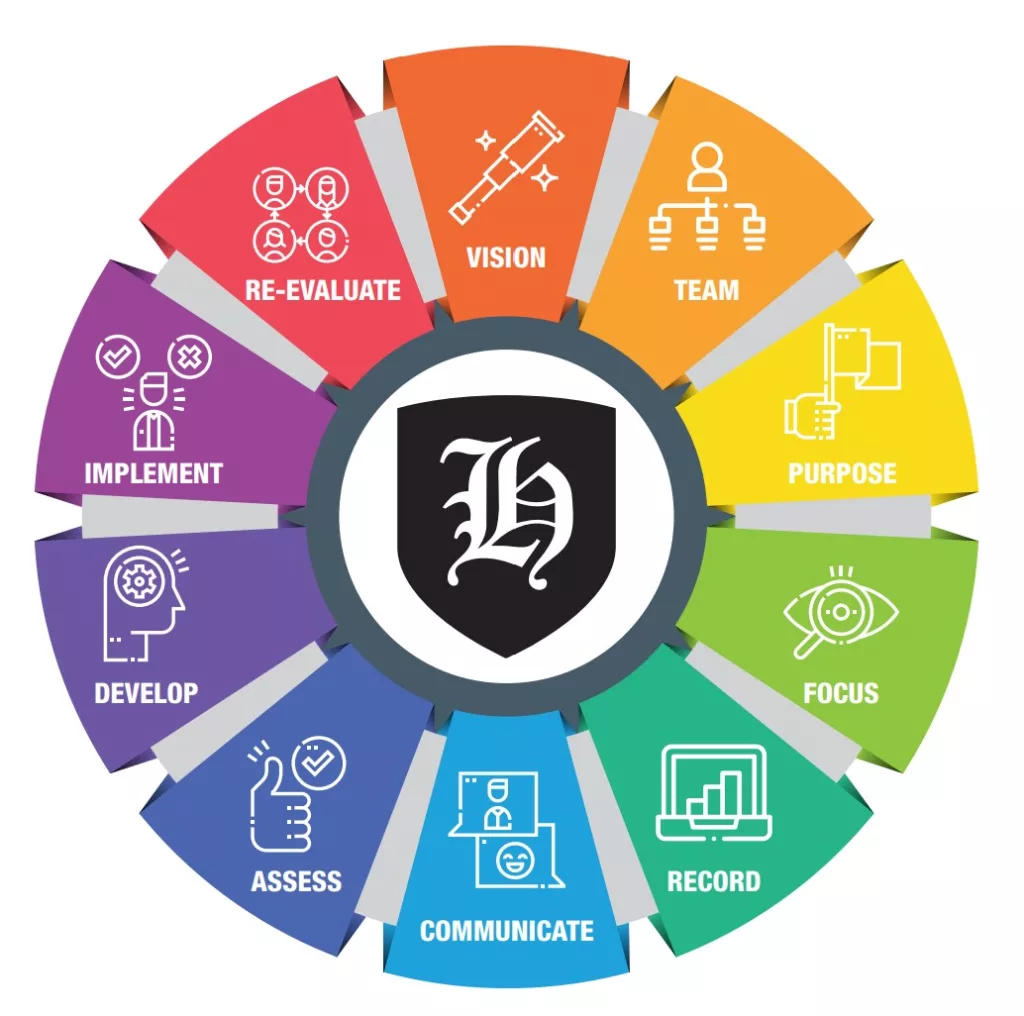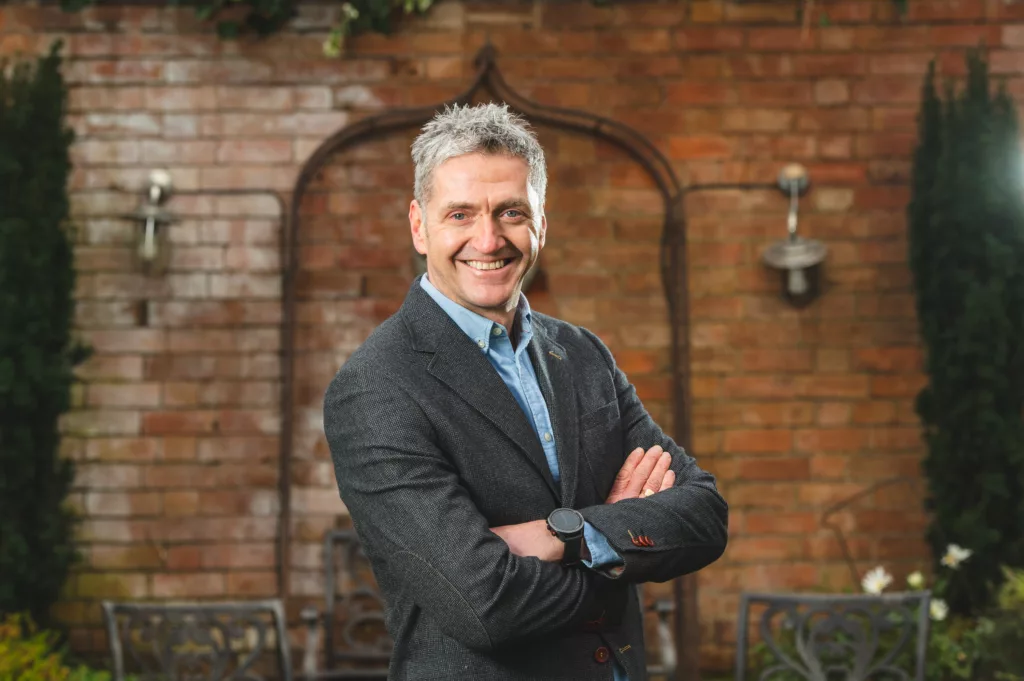Andrew Dodson and I are on a mission: to bring the Hereditas Legacy Planning Process into the mainstream of wealth management in the UK.
But why does the concept of Legacy Planning resonate so strongly with me?
My 32-year career in wealth management has been largely centred around helping entrepreneurs, business owners, senior managers, and specialist professional service providers to plan and manage their personal finances around a values-driven Life & Legacy agenda.
That experience has been formative. I’ve seen firsthand the power of helping driven individuals harness their capacity to create value – for themselves, their families, and the communities they care about – while also addressing how to enjoy and sustain their success and share that value responsibly. This is why I’m a champion of Responsible Capitalism and the Entrepreneurial Spirit.
I’m driven to help successful wealth creators and their families protect and grow their wealth for their own benefit and for the benefit of the people and causes they care about – so that their wealth continues to be a positive influence and a valuable resource across and down the generations, and for the generations to come. Because positive outcomes are so rare, and yet so valuable!
What typically goes wrong?
In around 90%* of all cases, self-made wealth gets progressively lost or dissipated down the generations, largely because beneficiaries become more and more detached from the values, wisdom, inspirational stories, and cautionary tales that drove the original wealth creation.
This phenomenon is encapsulated in the timeless wisdom of phrases such as “Clogs to Clogs in Three Generations” (Lancashire, Industrial Revolution) and “Shirtsleeves to Shirtsleeves in Three Generations” (Andrew Carnegie, Scottish-American industrialist) and “Fu bu guo san dai” or “Wealth never survives three generations” (Chinese proverb).
Why do we see this phenomenon again and again?
Usually, because the family culture shifts:
- From financial restraint, calculated risk-taking and profit reinvestment, to business and financial naivety, consumerism and hedonistic excess.
- From family harmony and collaboration, to conflict, jealousy and legal disputes.
The root cause?
Failing to prepare the next generation to preserve and pass on not just financial wealth, but also the wisdom and values and relationships that created and sustained it.
Yet we know that some families mange to buck the trend – the Rothschild, Phipps and Mars family stories are all well-known examples of wealth creators who managed to build legacies that have endured and supported multiple generations and the causes they care about.
What‘s the difference that makes the difference?
Legacy Planning. The intentional, deliberate and intelligent act of:
- Assessing and mitigating the risks that could lead to poor outcomes, and
- Building the culture, infrastructure and personal development opportunities that enable lasting success.
At Hereditas, we’ve studied what works (and what doesn’t) from around the world and across cultures. Our guided process is the first of its kind, tailored to the UK market and designed to integrate seamlessly with the broader wealth management journey.
The Three Pillars of a Comprehensive Approach to Wealth Management
Any truly comprehensive personal wealth management process must fully address a Life & Legacy agenda by integrating these three key planning processes:
1️⃣ Personal Financial Planning
Strategic, guided values-driven planning processes covering the two key aspects of personal finance:
- Lifestyle Financial Planning: creating and managing wealth for your personal enjoyment, fulfilment and security during your lifetime.
- What-If Contingency Planning: protecting yourself and managing the financial risks of poor health, premature death and other potential disaster scenarios.
2️⃣ Estate Planning
The process of preparing your money for your beneficiaries. The legal and tax-efficient preparation of your money for transfer to your nominated beneficiaries – both during your lifetime and after your death. Largely transactional in nature.
3️⃣ Legacy Planning
The process of preparing your beneficiaries for your money. Legacy Planning is about the transition of all key forms of wealth across the generations to support the people and causes you care about, not just today but for generations to come. Primarily relationship-based and values-driven.

What wealth needs to be managed?
When we talk about your wealth in the context of your Legacy Planning, we’re not only talking about Financial Wealth. We’re also talking about:
- Your Human Capital: the wealth of personal knowledge, values and wisdom that has enabled you to create, protect and grow your financial wealth and social capital.
- Your Social Capital: the personal relationships, connections and networks that have helped you create and and grow your financial wealth and develop your human capital.
The reason it’s so important to incorporate the management of these latter two resources into a comprehensive approach wealth management is that the creation, protection and sustainable growth of Financial Wealth is often the consequence of a wealth creator having effectively leveraged their Human and Social Capital.
The three types of legacy you can leave
And when we talk about legacy, we’re talking about planning from three perspectives:
- Personal Legacy: the impact of your personal values, vision and life story.
- Financial Legacy: the impact of your assets and money.
- Social Legacy: the impact on your chosen charitable and philanthropic causes.
Why Legacy Planning should matter to You and Your Clients
We see Estate Planning as primarily about managing things, whereas Legacy Planning is about nurturing people and relationships. For most people, a Legacy Planning process is often the missing link – ensuring that your life’s work continues to be a force for good beyond your lifetime and for generations to come, rather than a dwindling resource to be squandered and eventually lost
And for those wealth management professionals interested in becoming Licensed Hereditas Practitioners or Introducing Partners and wanting to incorporate our guided Hereditas Legacy Planning process into your existing wealth management service proposition – we can help you strengthen your client relationships and enhance the value you deliver – because your advice will be addressing not just the preservation and transfer of wealth, but also the family culture and relationships that underpin its influence on the people and causes your clients care about the most.
That’s why Andrew and I are on a mission: to bring Hereditas, The Legacy Planning Process into the mainstream of wealth management.
Because if you want your wealth to be a positive and sustainable influence and motivator for the people and causes you care about, it’s not enough to prepare your money for your beneficiaries. You must also prepare your beneficiaries for your money.

* Reference Material
Several studies and surveys consistently find:
- About 70% of wealthy families lose their wealth by the second generation, and around 90% by the third generation[6][7][8][10][11].
- The Williams Group, a wealth consultancy, conducted a 20-year study of over 3,200 families and found that only 10% of family fortunes survive past the third generation[6].
- Merrill Lynch’s private banking arm found similar results: 60% of fortunes do not survive the second generation and 90% are gone by the third[7].
- Wealth advisors and commentators note this pattern is so common across cultures that it is seen as “practically economic gravity”[11].
The main reasons cited include lack of financial education for heirs, poor succession planning, family disputes, and the tendency for later generations to lack the experience or discipline of the wealth-creating generation[6][8][11].
While some experts caution that the oft-quoted statistics are based on a limited number of studies and may be overstated, the general pattern is widely recognized among wealth professionals and supported by multiple sources[10].Sources:
[1] Inherited wealth on course to be a much more important determinant … https://ifs.org.uk/articles/inherited-wealth-course-be-much-more-important-determinant-lifetime-resources-todays-young
[2] Is succession planning a dying art? – Macfarlanes https://www.macfarlanes.com/what-we-think/2023/is-succession-planning-a-dying-art/
[3] Increasing longevity creating major change in inheritance trends https://mortgagesoup.co.uk/increasing-longevity-creating-major-change-in-inheritance-trends/
[4] Inheritances and inequality within generations https://ifs.org.uk/publications/inheritances-and-inequality-within-generations
[5] [PDF] Aging and the Inherited Wealth of Nations https://www.ifo.de/DocDL/dice-report-2016-1-pestieau-onder-march.pdf
[6] How to beat the third-generation curse https://business.smu.edu.sg/master-wealth-management/lkcsb-community/how-beat-third-generation-curse
[7] 60% of inherited fortunes do not survive the second generation and … https://www.reddit.com/r/personalfinance/comments/2md7q5/60_of_inherited_fortunes_do_not_survive_the/
[8] 5 Myths About Generational Wealth You’ve Likely Heard https://heritageinvestment.com/5-myths-about-generational-wealth-youve-likely-heard/
[9] [PDF] Inheritance.pdf – Resolution Foundation



